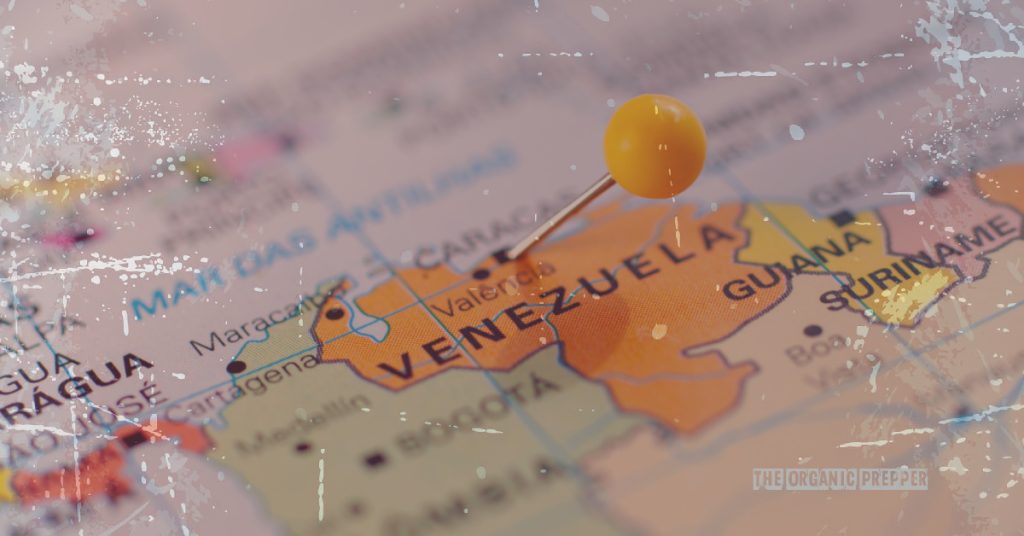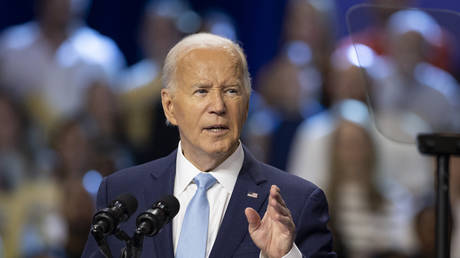Venezuela: Electoral Warfare by the Book

To understand what has been going on in Venezuela over the past few weeks, you have to realize two things: one, that the presidential elections there took place in the “backyard” of the U.S. and two, that the country is following a “leftist course”.
All countries in the region that have followed such a leftist course in the past twenty years have been confronted with attempts at destabilization and regime change, ranging from military coups, lawfare, institutional coups to attempted color revolutions. For an overview of these, see the annex, below the article.
Hybrid War
Venezuela is no exception to this rule, on the contrary. As a leader in the development of a multipolar world in which the West can no longer assert its superiority, Venezuela is the most targeted country in the region. Since Chávez was elected president in 1999, the empire has pulled out all the stops in efforts to sabotage this leftist experiment.
These efforts include two coups, an assassination attempt on the president, military provocation through development aid, murderous street blockades, a lockout by oil bosses, diplomatic isolation, hoarding of essential goods to create scarcity, heavy economic sanctions, freezing of foreign assets and making financial transactions impossible.
When we think of war, we immediately think of bombs and missiles. In Venezuela, those are not deployed; war is waged in a different way. The aggressions against the country listed above are all examples of what is called hybrid warfare. Each of those tried strategies was planned or financed from the US.
The events of the past few weeks in Venezuela before, during and after the presidential elections fit perfectly into that picture and can be described as electoral warfare.
Carefully Crafted Script
Nothing that happened before, during and after the elections was a coincidence or came out of the blue. Everything was well thought out. In fact, what was about to happen was announced in advance by the far-right opposition.
A few weeks before the election, the US supported “far-right” opposition candidate Edmundo González, announced that he would not accept the results if he lost. In the past, this led to riots and the infamous roadblocks (guarimbas) in Venezuela. It was written in the stars that this would happen again now.
The far-right opposition’s maneuvers followed a carefully crafted script. The most important elements of it were even published in advance by Mark Feierstein, an expert in psychological warfare and disinformation. This man was also a key figure in the dirty war against Nicaragua in the 1980s and in the coup against President Fernando Lugo in Paraguay.
We list the most important elements of his script.
1. Use economic sanctions in a clever way. According to Feierstein, the devastating economic sanctions must be used as leverage in forcing the left-wing government to make concessions. In addition, the sanctions are an excellent tool for electoral blackmail: vote left and the sanctions are continued; vote right, they will be abolished. It is a strategy that was successfully applied in the 1990 elections in Nicaragua.
In any case, the sanctions have had a devastating effect on the economy and living conditions. They have exhausted Venezuelans and a part of the population expects and hopes that Washington will stop its economic strangulation if Maduro is no longer president.
2. Unite the opposition under US impetus. In the past, the opposition was deeply divided, and for that reason it had little chance against Maduro and before that against Chávez. This time, Washington had done everything it could to unite the opposition. With reasonable success.
Washington’s influence is undeniable. The actual opponent was Maria Corina Machado who had been personally received by President Bush Jr. at the White House in the past. Two days after the elections there was a meeting between the far-right opposition and a top advisor to Biden to map out the strategy for the near future.
3. Infiltrate and pressurize the National Electoral Council. The National Electoral Council, which organizes the elections (CNE) and is responsible for the results, is an independent body that does not depend on the government, but on parliament. Feierstein suggests infiltrating it and also calls on countries in the region to put pressure on the CNE.
4. The opposition must come up with its own results before the electoral council announces the official results. In point 8 we describe how manipulated polls and false exit polls were intended to impress upon Venezuelans and the outside world in advance that the opposition would win anyway and that the official results would be the result of fraud if Maduro won.
Without explicitly stating this, Feierstein indicates that it is best to confirm these polls and exit polls by means of so-called ‘own counts’ carried out by the opposition. That gives them an almost official character.
For this to happen, it was necessary to delay the official results. That was the result of a massive cyber-attack (point 9). In addition, it would be urgently necessary to publish the “own” results This required a website of one’s own (point 10).
5. Appeal to countries in the region. Feierstein is well aware that the US is not the most suitable player for influencing the army and the National Electoral Council – the two crucial players in the election. In Venezuela some of the right-wing elements think direct interference by Washington something delicate and it would not be beneficial elsewhere in the world either.
Therefore, it is better to involve countries from the region. This strategy has only been partially successful. A number of Latin American countries that align themselves with US foreign policy have not recognized the official results.
However, important countries such as Brazil, Mexico and Colombia have indicated that they will recognize Maduro’s victory if it is confirmed by the competent authorities of the country. These countries also oppose US interference in these elections.
6. In case there are riots, put pressure on the military. It is hardly possible for an official like Feierstein to openly incite riots, but a dog whistle conveys the message just as clearly. Feierstein implicitly indicates that there will be (or should be) riots if Maduro wins. The US has a long tradition and is experienced in organizing such riots.
He does realize that there is great loyalty among the armed forces toward the leftist government. But he still hopes to convince a part of the army, especially conscripts and lower-ranking officers, to side with the rioters.
Mauricio Macri, the right-wing ex-president of Argentina, has shown himself willing to collude with the US for this part of the script. Before the official results were known, he called on the armed forces in a tweet to turn against President Maduro. A former head of a foreign state calling on the army to rebel against a president, that is very far-reaching.
La mayoria de los venezolanos hablaron fuerte y claro: Maduro debe dejar el poder. Ahora las Fuerzas Armadas de Venezuela tienen la oportunidad de ponerse del lado correcto de la historia y garantizar que se respete la voluntad del pueblo.
Llamamos a la comunidad internacional,…
— Mauricio Macri (@mauriciomacri) July 29, 2024
Additional Elements
Feierstein’s script leaves little to the imagination. But there are a number of elements missing because it is difficult to put everything on the table in such an open on-line document. The missing elements are the following:
7. Media war against the Bolivarian project and Maduro. The media in Venezuela are still largely in the hands of powerful capital groups that are aligned with the US and are virulently against the leftist government. Both in the domestic and foreign press, a real smear campaign has been waged against the Bolivarian project for years. They remain coyly silent about the crushing economic sanctions while blaming the government of Venezuela for the economic problems.
Although Maduro managed to keep his country going in extremely difficult circumstances, he is portrayed as incompetent, corrupt, a drug trafficker, and even a little crazy. Such a context of cognitive warfare is anything but favorable to go to the elections.
8. Manipulated polls and exit polls. In the run-up to the elections, polls were used as a weapon. The polls conducted by the US (Datanálisis, Delphos, Consultores 21 and ORC Consultores) presented a story that opposition candidate Edmundo Gonzalez had a 20 to 30 percentage point lead over Maduro.
These polls were eagerly taken up by the mainstream media, including ours. Thanks to these polls, Venezuelans and world citizens were already convinced that Maduro could not win unless he committed fraud.
These so-called polling agencies are often nothing more than camouflaged ideological war machines, investing fortunes to manipulate people’s minds. Links with the CIA or its front organizations are never far away.
In contrast, the Western media kept silent on polls by Hinterlaces, Paramétrica and Ámbito, which gave Maduro an edge over opposing candidate González. This strategy is not new. Even when Hugo Chávez was very popular, polling firms ‘predicted’ that he would lose the elections.
Same tactics in the exit polls. The prestigious Hinterlaces gave Maduro 54.6 percent and González 42.8 percent at noon, very close to the official result. The CIA-linked Edison Research gave González 65 percent and Maduro 31 percent.



